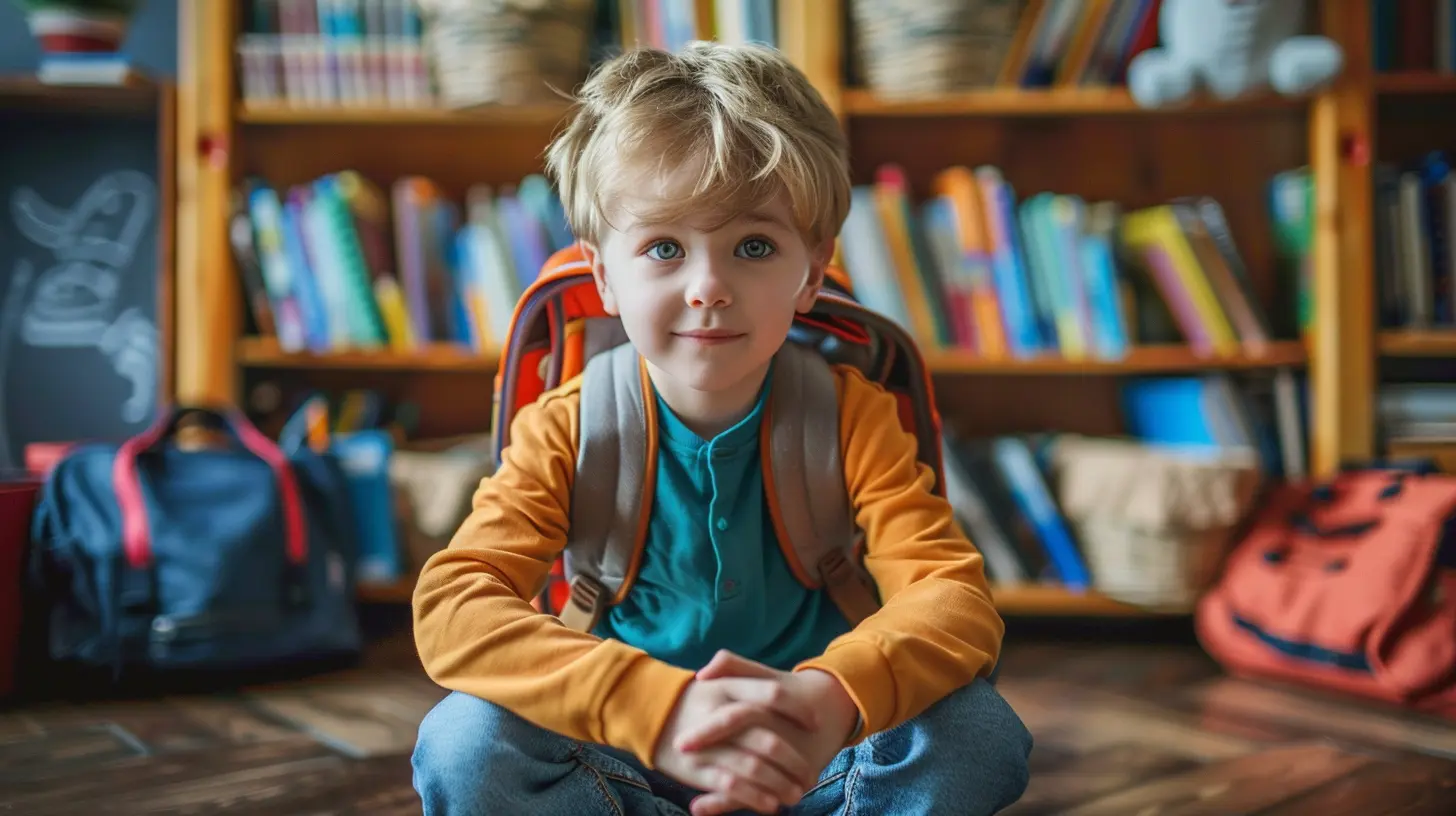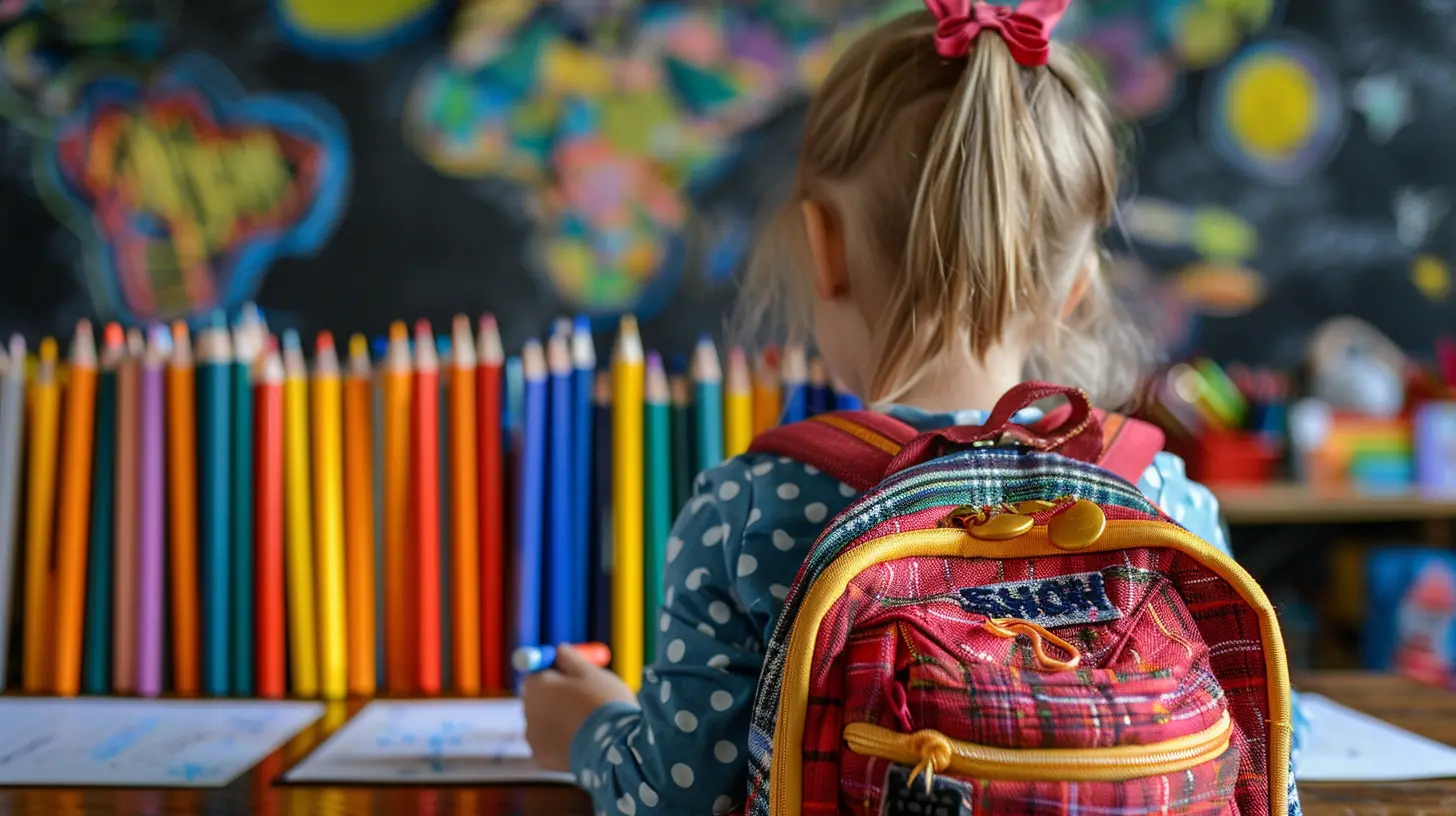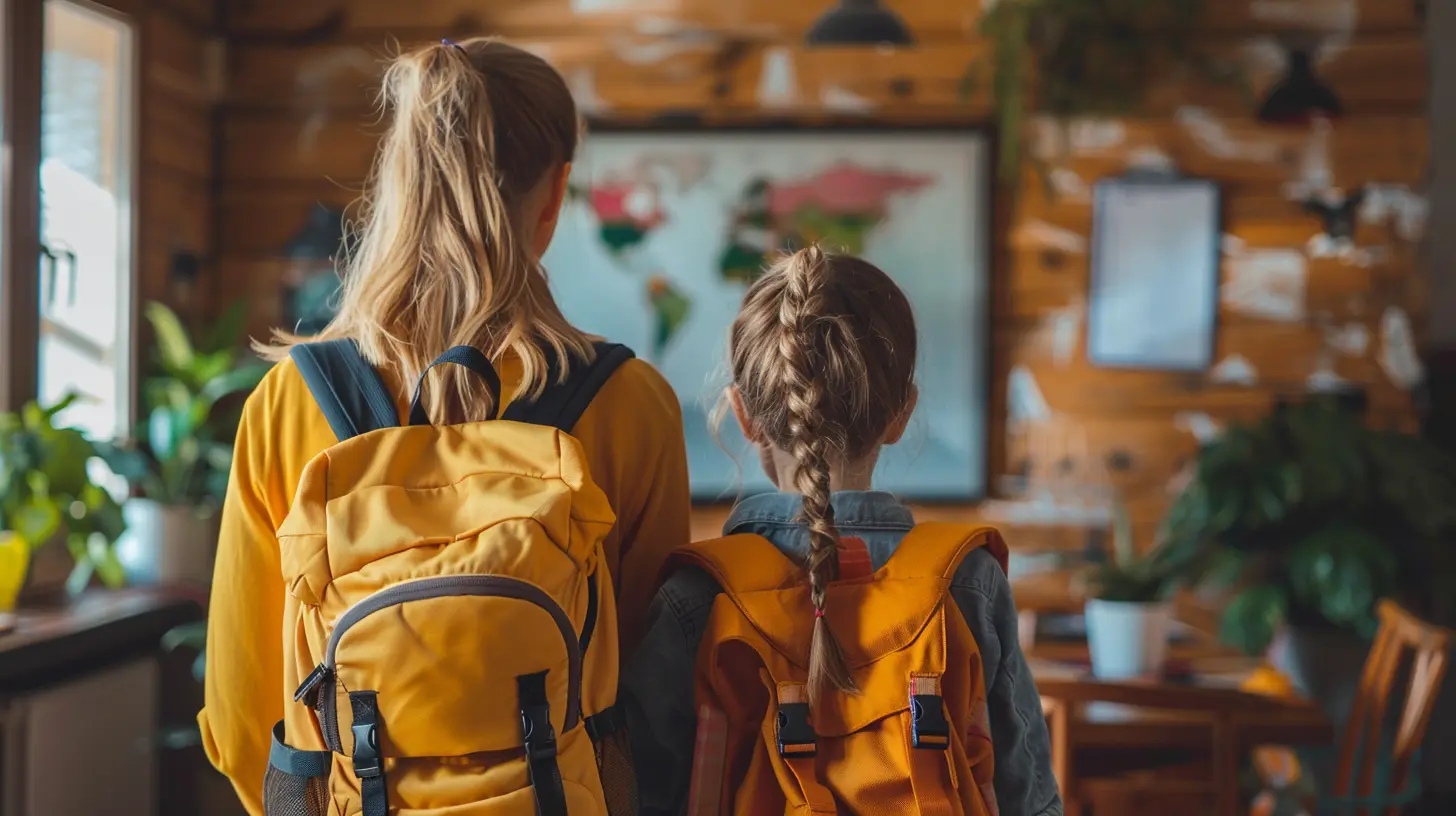Essential Self-Help Skills to Teach Before School Starts
31 October 2025
Starting school is a big milestone—both for kids and their parents. It's the beginning of a whole new adventure filled with learning, growth, and independence. But here’s the thing—learning doesn’t just happen inside the classroom. The foundation for a child’s school readiness actually begins at home. Before your little one steps foot into that colorful classroom, there are a few essential self-help skills they need to have under their belt.
Trust me, teaching these skills early on makes the transition to school life smoother—for everyone. So, grab a cup of coffee, sit back, and let’s chat about what your kiddo should be able to do before they rock that first school day.
Why Are Self-Help Skills So Important?
Think of self-help skills like training wheels for independence. These are the everyday tasks that help your child navigate their world with a bit more confidence and a lot less hand-holding. When kids can manage basic activities on their own, they feel more secure in unfamiliar settings—like a classroom.Also, teachers have their hands full (like, really full). They can’t zip up jackets or open lunchbox snacks for everyone. Your child being able to handle those little things means they’ll blend in confidently, not feel left out, and most importantly—they won’t be running to the teacher every five seconds (spoiler: teachers love this).
1. Getting Dressed Without Drama
Honestly, getting dressed can be an Olympic sport in some households (we’ve all been there). But being able to put on and take off clothes independently is a huge win before starting school.What to Practice:
- Pulling shirts over their heads- Putting on pants, socks, and shoes (Velcro is your BFF)
- Zipping up jackets and pants
- Buttoning and unbuttoning (if they wear uniforms)
🔑 Pro Tip: Use dress-up play as practice. Kids love pretending to be superheroes or princesses—sneak in those fine motor skills while they’re having fun.
2. Using the Bathroom Independently
Okay, I know potty talk isn’t the most glamorous, but it’s essential. One of the biggest concerns teachers express is whether kids are truly toilet independent.Your Child Should Be Able To:
- Recognize when they need to go- Use the toilet without reminders
- Wipe properly (front to back for girls!)
- Flush the toilet
- Wash and dry hands afterwards
Try to keep bathroom routines consistent at home so they stick in other environments too.
3. Feeding Themselves (Without A Fork Fiasco)
Snack time and lunchtime can be chaotic in school. Being able to feed themselves without making a total mess is a must-have skill.Teach Them To:
- Open containers and snack bags- Use spoons and forks properly
- Clean up spills or food messes
- Sit still while eating (a tough one, I know)
🤯 Mind-blowing tip? Practice lunch at home in a lunchbox. Get them familiar with opening it, using utensils, and cleaning up when they’re done. Bonus—it helps you figure out what they’ll actually eat.
4. Tidying Up—Because Magic Cleaning Fairies Aren’t Real
I know we all wish we had a tiny cleaning crew that followed our kids around, picking up their messes. But teachers can’t do that.What They Should Know:
- Putting toys or supplies back where they belong- Throwing away trash
- Hanging up backpacks and jackets
- Wiping spills or sticky fingers
Make clean-up a normal part of everyday life, not just a “when mommy yells” thing.
5. Speaking Up and Asking for Help
This one’s less about doing and more about communicating. Some kids are shy, some are chatty—but all need to feel comfortable expressing needs.Encourage Them To:
- Let someone know if they feel sick or hurt- Ask for help when truly needed
- Say “no” if they’re uncomfortable
- Use polite words like “please” and “thank you”
Role-play different scenarios at home. “What should you do if you can’t find the bathroom?” or “What would you say if someone took your toy?” You’ll be surprised how much they pick up.
6. Basic Personal Hygiene—No, You Can’t Skip Handwashing
COVID really taught us that good hygiene isn’t optional anymore. Even outside of pandemics, schools are filled with germs (hello, constant runny noses).Make Sure They Know How To:
- Wash hands properly and often- Cover their mouths when coughing or sneezing
- Use tissues (and toss them after)
- Keep fingers out of noses and mouths (we’re working on it...)
Handwashing songs can help turn a boring task into something fun. Sing “Happy Birthday” twice—it’s the golden 20-second rule.
7. Following Simple Instructions
Let’s face it. School involves rules—and lots of them. Teachers often give instructions that involve multiple steps. If your child can’t follow them, they’re going to struggle to keep up.Practice with:
- Two- to three-step directions like “Put your shoes in the basket and wash your hands.”- Listening without interrupting
- Staying on task (even if it’s just 10 minutes of focusing on puzzle time)
Attention spans aren’t perfect at this age, but the more practice they get following through, the better prepared they’ll be.
8. Managing Emotions—A Work in Progress
All kids have meltdowns. It's part of growing up. But learning how to express feelings in a healthy, age-appropriate way is a key skill that will help them in school and beyond.Help Them:
- Use words to express feelings: “I’m sad” or “I’m frustrated”- Practice calming strategies like deep breaths or counting
- Understand that it’s okay to feel different emotions
Emotional control isn’t about never crying or getting upset—it’s about helping your child recognize their feelings and respond in a more manageable way.
9. Social Skills—Playing Nice With Others
Whether it’s sharing crayons or waiting their turn, social skills are the glue that holds the classroom together.Encourage:
- Taking turns and sharing- Playing cooperatively in groups
- Empathy—understanding how other kids feel
- Greeting friends and teachers (“Hi” goes a long way!)
Set up playdates or join group activities where they can practice these social behaviors in real time.
10. Knowing Basic Safety and Personal Info
Emergencies happen. While it’s not about scaring your child, it's crucial they know a few safety rules and basic information.Make Sure They Can:
- Say their full name- Know a parent’s name (that’s not just “Mommy” or “Daddy”)
- Recite a phone number or home address (at least partially)
- Recognize safe adults (like teachers or police)
This isn't about memorizing a script, but rather giving them tools to feel secure in unfamiliar surroundings.
Teach Through Everyday Moments
Here’s the beauty of all this—you don’t need a fancy curriculum. Most of these self-help skills can be taught naturally during your daily routines.- Getting ready in the morning? Practice dressing.
- Lunchtime? Let them open their containers.
- Bath time? Perfect for hygiene skills and talking about feelings.
The goal isn’t perfection. It’s progress and confidence. So keep it light, make it fun, and celebrate the little wins.
Final Thoughts
Sending your child to school for the first time can tug at your heartstrings—but preparing them with these essential self-help skills makes a world of difference. Not only will they adapt to the new routine more smoothly, but they’ll also feel empowered to take on this big chapter in their life with a can-do attitude.You’ve got this—and so do they.
all images in this post were generated using AI tools
Category:
School ReadinessAuthor:

Max Shaffer
Discussion
rate this article
1 comments
Selkie Kane
As a parent, I’m constantly amazed at how much our little ones can learn in such a short time! These essential self-help skills not only build confidence but also set them up for success in school. Great tips!
November 3, 2025 at 5:17 AM

Max Shaffer
Thank you! I'm glad you found the tips helpful. It's amazing to see how quickly children adapt and grow with the right guidance!


